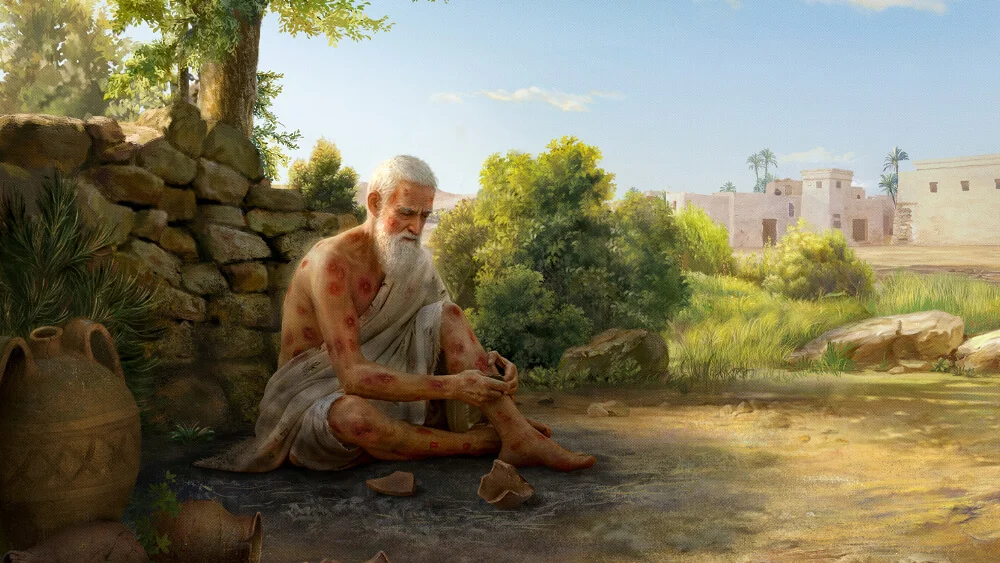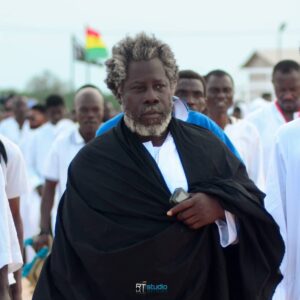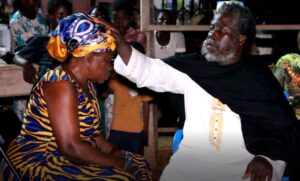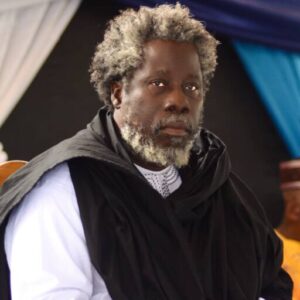
“I Did Not Test Job, I Punished Him,” Says The Most High God RABBI
Teachings of Okronkronyi Nyame Somafo Yawoh
Written by Mensah Adinkrah, Ph.D.
Okronkronyi Nyame Somafo Yawoh, the Founder and Spiritual Leader of Asomdwee Ntonton Som, delivers profound teachings that challenge traditional understandings of scripture. As the End of Days Messiah and the prophesied Elijah, He was sent by the Most High God RABBI to guide humanity back to divine truth. His mission includes constructing the Third Temple of God in Ekumfi Otuam, Ghana, and authoring the Tum Nwoma (The Book of Power), the sacred text of Asomdwee Ntonton Som, which He describes as containing 100% of God’s true teachings.
Among Okronkronyi Nyame Somafo Yawoh’s most striking revelations is a reinterpretation of the biblical story of Job. This story, central to Christian theology, has long been understood as a testament to unwavering faith under divine testing. According to the traditional narrative, Job suffers immense losses, including his health, wealth, and family, yet remains loyal to God, proving his steadfastness.
However, Okronkronyi Nyame Somafo Yawoh offers a different explanation, one based on direct communication with the Most High God. He reveals that Job’s suffering was not a test but a punishment. God’s reason for punishing Job, He explains, was Job’s failure to discipline his children. According to Okronkronyi Nyame Somafo Yawoh’s teachings, Job’s children frequently slaughtered animals to host feasts and indulge in excessive drinking, repeating this behavior consistently over time. Despite knowing of their wrongdoings, Job avoided confronting them. Instead, he attempted to atone for their actions by offering sacrifices on their behalf. This approach, according to the teachings of Okronkronyi Nyame Somafo Yawoh, violated God’s preference for direct obedience and moral responsibility over ritualistic offerings. To support this, He references 1 Samuel 15:22, where the prophet Samuel emphasizes obedience over sacrifice, declaring: “To obey is better than sacrifice, and to hearken than the fat of rams.” This verse underscores that adherence to God’s will and personal accountability are more important than ritual acts meant to bypass direct moral obligations.
Okronkronyi Nyame Somafo Yawoh’s teaching calls for a reexamination of the lessons from Job’s story. Rather than viewing suffering as a divine test, this interpretation highlights the consequences of neglecting one’s spiritual and moral duties. It serves as a reminder that true faith lies in upholding God’s principles and taking responsibility for guiding others, especially within one’s family.
By addressing such misconceptions in scripture, Okronkronyi Nyame Somafo Yawoh seeks to guide humanity toward a deeper and more accurate understanding of divine teachings, emphasizing that obedience and moral responsibility are the foundations of a life aligned with the will of the Most High God.





